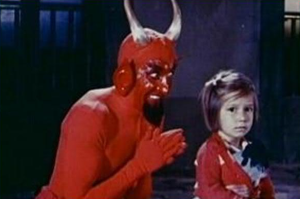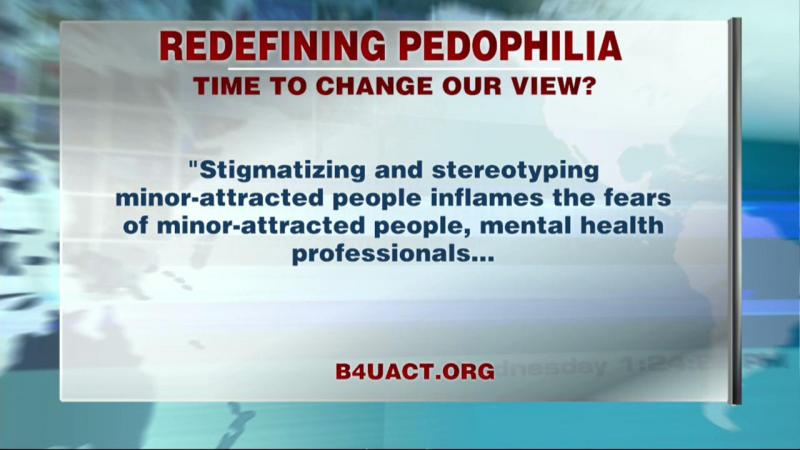Hannah Maluyao
Neon Tommy
October 31, 2013
People can classify themselves as heterosexual, homosexual, asexual, metrosexual. There are endless sexual orientations under the sun, and now, pedophilia can be added to the list.
In the fifth edition of the Diagnostic and Statistical Manual of Mental Disorders (DSM V), the American Psychiatric Association (APA) drew a very distinct line between pedophilia and pedophilic disorder. Pedophilia refers to a sexual orientation or profession of sexual preference devoid of consummation, whereas pedophilic disorder is defined as a compulsion and is used in reference to individuals who act on their sexuality.
APA’s decision has given rise to numerous pedophilia-advocacy groups, the chief of them being B4U-ACT, a non-profit grassroots organization based in Maryland. Created in 2003 primarily as a means for “minor-attracted persons” to be open about their sexual preferences in a supportive atmosphere, B4U-ACT is now widening the scope of their organization.
According to spokesperson and registered sex offender Paul Christiano, the pedophilia-advocacy group is “working towards de-stigmatizing the mental health community.” Christiano explained that negative societal attitudes towards minor-attracted persons “trickle down to policy-making and the mental health community.”
“Policy-making” is used chiefly in reference to the sex-offender registry. Christiano is not alone in advocating change within the system. Caitlin Myers, a doctorate student in Sociology here at the University of Southern California, says the registry needs to be “more senstitive to the nature of crime.” Myers explained that the chief problem within the sex-offender registry itself is the “one size fits all” viewpoint it bears towards sexual offenses. “There could be a man who committed 20 consecutive rapes and a 19-year-old boy who had sex with his 17-year-old girlfriend and they would be punished in the same manner.”
Change to the system is understandable, yet B4U-ACT’s grounds for such change remains murky. When questioned about the most responsible way in which a pedophile could manage his sexual preferences, Christiano answered that while B4U-ACT encouraged minor-attracted persons within the organization to openly acknowledge their feelings and desires, such sexual preferences must remain purely a mental exercise and therefore entirely unconsummated. In other words, pedophiles must be allowed to fantasize about minors, as long as such acts are never consummated.

